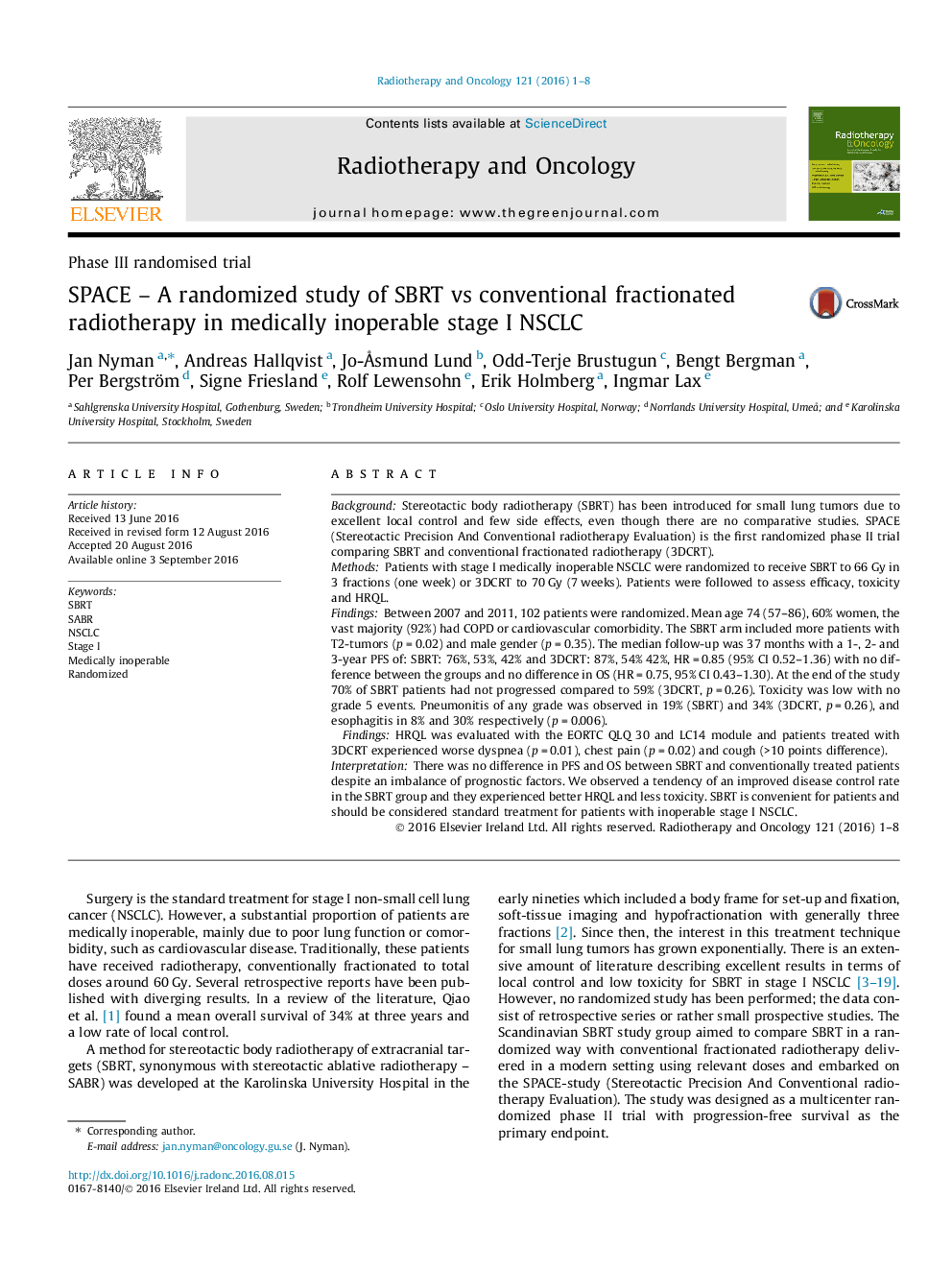| Article ID | Journal | Published Year | Pages | File Type |
|---|---|---|---|---|
| 5529785 | Radiotherapy and Oncology | 2016 | 8 Pages |
BackgroundStereotactic body radiotherapy (SBRT) has been introduced for small lung tumors due to excellent local control and few side effects, even though there are no comparative studies. SPACE (Stereotactic Precision And Conventional radiotherapy Evaluation) is the first randomized phase II trial comparing SBRT and conventional fractionated radiotherapy (3DCRT).MethodsPatients with stage I medically inoperable NSCLC were randomized to receive SBRT to 66 Gy in 3 fractions (one week) or 3DCRT to 70 Gy (7 weeks). Patients were followed to assess efficacy, toxicity and HRQL.FindingsBetween 2007 and 2011, 102 patients were randomized. Mean age 74 (57-86), 60% women, the vast majority (92%) had COPD or cardiovascular comorbidity. The SBRT arm included more patients with T2-tumors (p = 0.02) and male gender (p = 0.35). The median follow-up was 37 months with a 1-, 2- and 3-year PFS of: SBRT: 76%, 53%, 42% and 3DCRT: 87%, 54% 42%, HR = 0.85 (95% CI 0.52-1.36) with no difference between the groups and no difference in OS (HR = 0.75, 95% CI 0.43-1.30). At the end of the study 70% of SBRT patients had not progressed compared to 59% (3DCRT, p = 0.26). Toxicity was low with no grade 5 events. Pneumonitis of any grade was observed in 19% (SBRT) and 34% (3DCRT, p = 0.26), and esophagitis in 8% and 30% respectively (p = 0.006).HRQL was evaluated with the EORTC QLQ 30 and LC14 module and patients treated with 3DCRT experienced worse dyspnea (p = 0.01), chest pain (p = 0.02) and cough (>10 points difference).InterpretationThere was no difference in PFS and OS between SBRT and conventionally treated patients despite an imbalance of prognostic factors. We observed a tendency of an improved disease control rate in the SBRT group and they experienced better HRQL and less toxicity. SBRT is convenient for patients and should be considered standard treatment for patients with inoperable stage I NSCLC.
